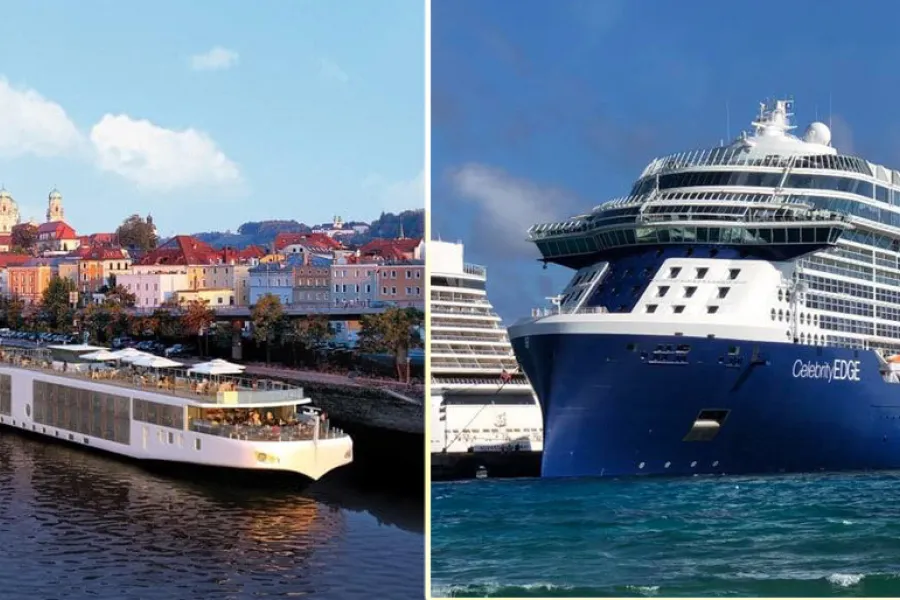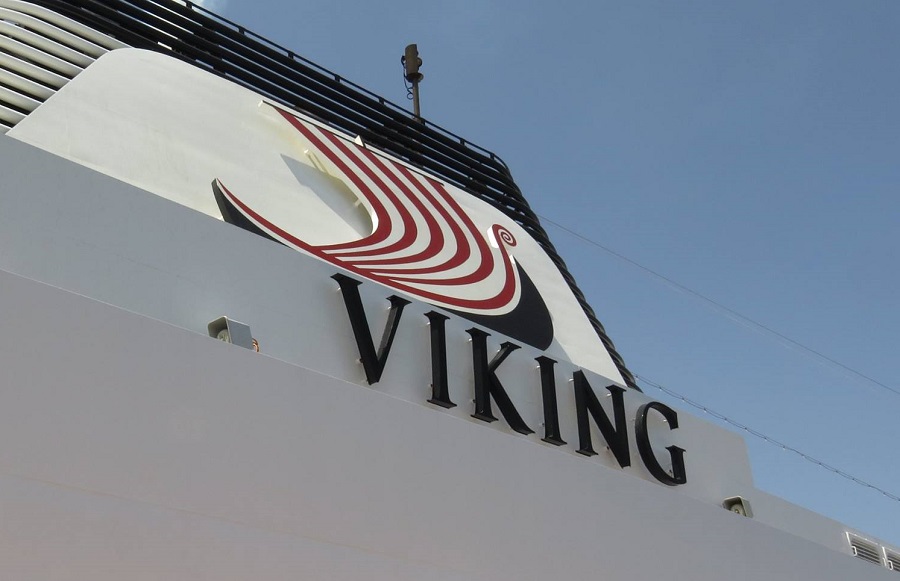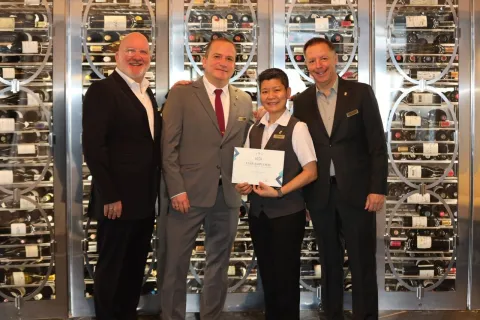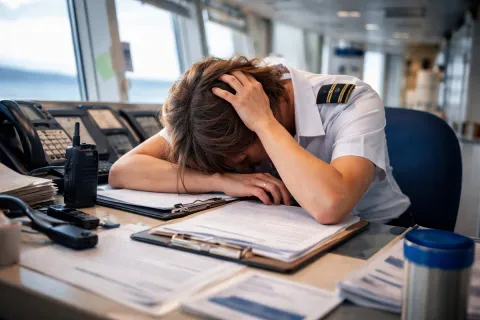
Work on a cruise ship is hard to generalize by someone's subjective experience. Someone back home might ask you- how is it to work on the cruise ship? Some friends may need advice on which cruise line is the best to apply for. Is it better to work on ocean cruise ships or river ship?
Honestly, it's very hard to answer in general; it has to be very specific. Still, those two jobs are entirely different regarding the salary package and the workload. In my own experience, the ocean cruise lines are better for the traveling experience that the job it comes with. Working on the ocean cruise liners will give you a tremendous opportunity to discover the most beautiful ports worldwide and visit some of the best beaches. If you are also a dynamic person, and you always want to have fun and meet millions of people every single contract, and you are a big fan of sipping a cocktail on some lovely Caribbean beach, then the ocean cruise line is the best choice for you.

On the other hand, if you are looking for a long-term job career at sea (with a potential Switzerland pension plan that Viking Cruise Line offers) if you like to travel around the ship and have shorter contracts, then river ship is better option. A good friend of mine has been working for the Viking for five years and has already earned the minimum Switzerland pension plan( when he reaches the age of 68). When we are young and full of desire and energy, we often don't give much importance to that vital aspect of our employment. Yet, when we come to a certain age and find ourselves still working on the cruise ship, having a proper pension plan could make a more stable, financially secure, and predictable future. It all comes down to your priority and choices. Sometimes in life, we make smart, long-term decisions. But sometimes, we make decisions based on our current emotions, and we are due to pay a high price for that in the future. You need to review your future plans occasionally and adjust your plan accordingly, regardless if you are working on the river or ocean cruise lines.
When you choose your vacation, there are many things to consider when it comes to the difference between the ocean and river ship. In some ways, river cruising is more similar to a land tour than today's ocean cruising experience -- and experienced tour companies run many river lines. You'll find there are better benefits, though, such as only having to pack and unpack once. Mega-ship staples like pools, multiple lounges, specialty restaurants, spas, and endless activities are available on some riverboats, although on a very, very much smaller scale. And you won't find any sea days, although there are periods of scenic cruising.
River ship staterooms are smaller than their ocean ship counterparts but need more home comforts. River ships eschew inside cabins, and all accommodations face the water. Newer riverboats are getting creative, adding balconies and cleverly designing cabins to maximize the space allotted. Many have panoramic windows that slide down at the touch of a button to create the feeling of a balcony, even though you can't step outside. They're even adding suites, with luxury river lines boasting staterooms of up to 860 square feet (although you'll be paying thousands of dollars for that extra personal space).
You'll find no splashy production shows, guest comedians, or karaoke on the river ships. You will find a lone resident pianist or small ensemble on most ships, folk dancers, singers, or other local troupes brought onboard for a quick evening show. During the day, you can expect educational seminars and the odd cooking demo, wine tasting, or quiz. With river cruising, the passing scenery and destinations visited are the show's main star -- and after a busy day, most passengers head for bed rather than stay up into the early hours.
Related Article: What's the difference between working on a river ship vs. ocean cruise ship?

Unlike ocean cruises that have leisurely sea days, river cruises are port intensive, and you'll visit a new destination each day -- sometimes two in one day -- and up to four countries in a week. The ports, not the ships, are the key attractions, and you will certainly pack a lot of sightseeing into a week or two. This kind of travel can be exhilarating but also exhausting. Bring comfortable shoes, and don't be embarrassed to take a day off if you're getting overwhelmed. The tours might be included, but there's no obligation to go on all of them.
If you've been spoiled by mega-ships where you can eat dinner in a different venue every night during a weeklong cruise, you'll need an attitude adjustment to embrace riverboat dining. Most ships have one main restaurant, and breakfast and lunch are often buffet-only (or buffet mainly, with a few items to be ordered a la carte) with a served evening meal. Most river ships have intimate secondary venues -- some vessels up to four -- offering alternative menus and private dining. A handful of lines now provide room service, previously a rarity.
If you've griped about being nickeled and dimed on oceangoing ships, you'll find river cruise fares refreshing. though often more expensive. Fares will typically include wine, beer, and soft drinks with meals, dinner in specialty restaurants, 24-hour tea and coffee, Wi-Fi, and standard tours in each port. Some lines offer all-inclusive fares covering all drinks, tips, transfers, and even a hotel night before your cruise. With fewer onboard attractions to part you from your cash, you won't be racking up such an extensive onboard bill (though limited evening entertainment can lead to excessive post-dinner cocktailing and a high bar tab -- but the upside is that no drinks carry an automatically added gratuity. Plus, most river ships allow you to bring wine back onboard that you've bought in local shops and vineyards)
Ocean ships have passenger counts in the thousands, while riverboats carry 200 passengers or fewer. Some exclusive hotel barges cater to just eight passengers. On the plus side, you won't be elbowing strangers to get to the salad bar or the gangway, and the atmosphere is quite social, so you quickly get to make new friends. As a minus, you can't hide in a crowd. The boat's small size means there is likely just one lounge (maybe two), one main restaurant with a couple of smaller dining venues, and a teeny-tiny spa, gym, or computer center - if there is one at all.
The river ship is also much better regarding the duration of the contracts, especially because some European Cruise lines are also partly or fully paying for your vacations. Regardless of your priorities, it's important to do some diligent research before our ship assignment; you have to collect as much relevant information about the job, the company offered benefits, and other important details. That can make a huge positive or negative difference in your ship career. Choose your future on the ship carefully, and join the best company to help you progress in your career and gain new skills! Your future is in your hands! Have a great contract, everyone!
Crew Insights
Articles and experiences shared by crew members working on cruise ship. Find out more about ship life at sea together with tips and advices for first time crew members and cruise oldtimers.












